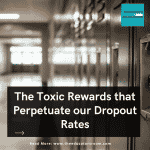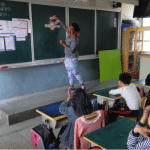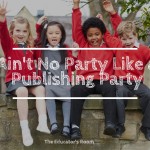I have a rule in my classroom:
[fusion_builder_container hundred_percent=”yes” overflow=”visible”][fusion_builder_row][fusion_builder_column type=”1_1″ background_position=”left top” background_color=”” border_size=”” border_color=”” border_style=”solid” spacing=”yes” background_image=”” background_repeat=”no-repeat” padding=”” margin_top=”0px” margin_bottom=”0px” class=”” id=”” animation_type=”” animation_speed=”0.3″ animation_direction=”left” hide_on_mobile=”no” center_content=”no” min_height=”none”][bctt tweet=”If at least one parent isn’t worried or upset with my curriculum at all times then I am not doing my job.”]
But Wait! Don’t think I’m a rebel. Yes, I get a kick out of reading Shakespeare and Chaucer and watching students’ faces glow when they realize the intellectual crudity of both writers, but that’s just a perk of teaching Literature. Besides, parents don’t complain about Shakespeare and Chaucer. Parents lose sleep and sweat over Twain, Vonnegut, Whitman, Hurston, Alexie, Morrison, and Hosseini- those are the controversial authors.
But here is the rub– As a teacher I can make Winnie the Pooh controversial.
I’ll tell you why- beecause [bctt tweet=”Education is a liberating and risky enterprise.”]
Education makes the mundane miraculous, gives a voice to the unheard, changes the very threads of existence. [bctt tweet=”Which is why for thousands of years education has been at constant war with those who try to control it.”]
But the advent of the technological revolution has changed everything. As Ray Bradbury wrote, “You don’t have to burn books to destroy a culture. Just get people to stop reading them.” Maybe we aren’t there yet, but we are close.
The sheer glut of data from the internet, social media, media outlets, television, magazines that poses as information is astronomical. Everyday our brains are bombarded by pseudo-facts, orchestrated angles, lying advertisement, subconscious subliminal messages, jibber jabber, rumors and deciphering the language is downright exhausting.
Thus enters the sheeple.
[bctt tweet=”Sheeple happens when people forget to ask questions, raise doubts, and think”]. When people forsake the human critical process and instead blindly follow like sheep. Sheep-People. Sheeple
A real word and a real phenomenon. Sheeple is the evolution of blind acceptance; the acquiescence of information without question, research, or analysis. And it is happening inside the classrooms more and more. It is happening in our homes more and more. It is happening in our colleges and universities more and more. But Why?
Somewhere along the path of learning data became more important than the learner. For example, in 2014 the Jefferson County School Board in Colorado wanted to downplay specific events in American history and focus on patriotism and respecting authority in Advanced Placement American History Curriculum. Without protests the civil rights movement, the Vietnam War protests, Women’s Suffrage, and even the abolition of slavery would have been downplayed.
Two weeks ago in Texas, a justifiably upset mother, Roni Dean-Burren made the news by objecting to a McGraw Hill Textbook that called African American slaves “workers” in a Patterns of Immigration section of the textbook. McGraw-Hill vowed to make changes after public outcry but Texas curriculum is still under scrutiny due to accusations of revisionist history both politically and religiously presented in History texts. Texas is the second most populous state which means edits made in Texas influences textbooks around the country.
Revisionist history, however, is nothing new to the human experience. Even Virgil’s Aeneid was used as a textbook in Roman Schools, after all. The difference is the enormity of data now daily presented to learners to decipher is a daunting and almost impossible task. Even advertisements are redesigned to look like news sources. I used to ask students to watch the news so they could relate modern problems to literature, but now I can’t even trust most major news outlets to report without propagandizing the angles.
So how do I prevent sheeple from pasturing in my classroom?
It all begins by realizing education is a foundation not a shelter. I refuse to spoon-feed the data of my curriculum to students. Instead, I use the curriculum to create an atmosphere bolstering learning through the classroom dialogue. There are four specific areas to focus on in dialogue.
1.) Critical Thinking and Reasoning: Quality over quantity is important in education. Instead of busywork that often resembles data overload, focusing on the essential ideas and provocations within the scope of curriculum well prevent your students from becoming sheeple. Students love engaging with shocking ideas. They may not understand Twain’s idiomatic simile’s throughout Huckleberry Finn two weeks after a test, but they will always remember the moment Huck defies the prevalent political and religious ideologies of slavery and calls it unnatural when he makes his decision to “burn in hell” for Jim. It is harder to assess ideas than data, but who said being an educator was easy?
2.) Relationships: Humans don’t exist in a vacuum we are communal creatures that desire association. School is definitely a student test laboratory for community. Though ideas can change the path of my life relationships probably have the biggest influence for change. We don’t offer people our ideas as they lay in their deathbeds; we offer them our presence. In the classroom, communication, disagreements, debate, personal boundaries, gender roles, manipulation, and sexuality all affects relationships. It is important to for teachers to be aware of student treatment and encourage and teach relational development through class and cooperative learning.
3.) Doubt and Skepticism: Doubt opens students to exploration and curiosity. Though there is a pervasive taboo toward doubt in American culture stemming from our desire to present ourselves as close to perfect as possible. Somewhere we were told making mistakes and asking too many questions wasn’t okay. Strange, because both seem to be a cornerstone of education. Also, certainty creates pride and arrogance at an alarming rate and can often be blamed for later catastrophes.
4.) Self Management and Awareness: Navigation of the self and understanding the internal mind is one of the most essential parts of education. This doesn’t mean my classroom is a place where we sit in a circle and talk about the deep repressive feelings that create the internal conflict of our lives. But these areas are important and consistent journaling and real discussion not based on data but on ideas often creates these moments for students. This process is called meta-cognition, the ability to think about thinking, or feel about feeling. It helps planning, self-discipline, emotional attenuation, and foreseeing potential problems.
These suggestions aren’t a magic formula, I’m not John Keating, and my students don’t stand on their desks at the end of the semester and recite “O Captain, My Captain” to me. My students aren’t sheeple though. I won’t let them be; that much I can control. I can work with intrusive parents, and revisionist curriculum, and standardized testing- but I can’t allow students to leave my classroom without a respect for education, their own learning experience, and a map for making for navigating their way in the learning process.[/fusion_builder_column][/fusion_builder_row][/fusion_builder_container]





